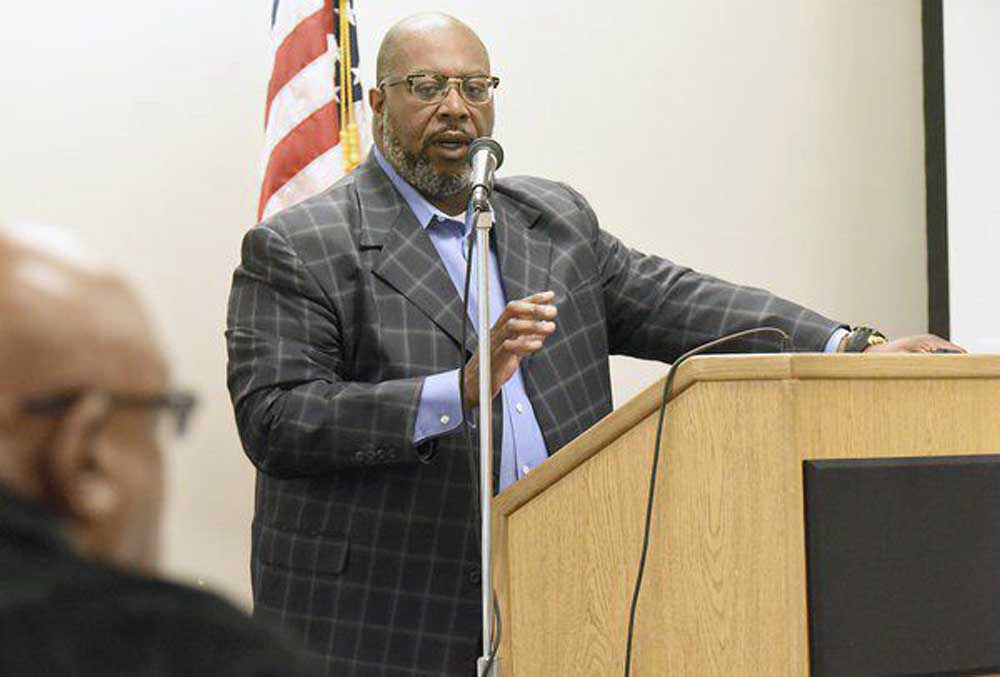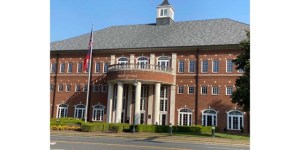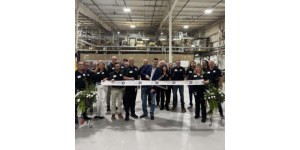Volunteers needed to help inmates re-enter into society
Published 9:22 pm Saturday, January 27, 2018

- Matt Hamilton/Daily Citizen-NewsPastor Windell Smith from Hopewell Baptist Church in Dalton speaks on Saturday at the Mack Gaston Community Center.
After serving 15 and a half years in prison for robbery and kidnapping, Ronald Bristow said he was confronted with many obstacles after being released in 2016.
“I can’t even begin to describe the mindset I was in,” he said. “When I went into prison people were using two-way pagers, now cellphones are taking pictures.”
Trending
Bristow, 37, was one of the speakers Saturday at the Faith Community Appreciation Breakfast at the Mack Gaston Community Center in Dalton.
The breakfast was organized by John Bruce with the Georgia Department of Community Supervision. Bruce is the faith and justice coordinator for north Georgia. He said the purpose of the breakfast is to initiate ways to involve churches with former inmates.
“We’re trying to bridge the gap between our faith community and those coming home from prison,” he said.
The meeting included a panel of guests from the Georgia Department of Corrections; Windell Smith, pastor of Hopewell Baptist Church in Dalton; Bishop Kenneth Carson of New Bethel Christian Fellowship in LaFayette; former prisoners and representatives from social services.
“I went to prison in 2001, think back to where you were in 2001, look at where you are today and how much has changed,” Bristow said. “That’s what I was confronted with.”
Bristow said churches need to do more than have a prison ministry.
Trending
“I think that’s where churches have failed,” he said. “We don’t need another church to come inside prisons, there are more than enough services taking place inside the walls,” adding that many inmates attend church services outside scheduled times.
“The problem is when I was released from prison I couldn’t find the ministries that were coming on the inside,” he said. “Everyone is not privileged and blessed to come home to a family who was there for the duration of prison.”
Antonnio Printup, director of special operations for the Georgia Department of Corrections, said he travels to a lot of prisons.
“I talk to a lot of the guys inside the institutions and one of the things they have is a foundation from God and the church,” he said. “Just about every cell I go into I find one, maybe two Bibles.”
Prisoners may have access to church leaders who minister to them, but when they are released, that connection is broken.
“We have to give them an opportunity and a chance once they are released,” Printup said. “You have to give them tools to be effective,” he said.
Kenneth Carson worked for the Georgia Department of Corrections for 30 years. He said some churches may feel that inmates are a burden.
“That’s not the case, it’s our duty to reach back and pull someone back with us,” he said. “Give them a hand up, not a hand out, because most of the time that’s not what they are looking for.”
Wesley Johnson, executive director of Project Destiny, a Dalton-based, after-care program serving individuals transitioning from incarceration back into society, said he knows first hand what it’s like. He was released from prison in 2011 after serving four years of a 10-year sentence.
“I made mistakes and had to answer for them,” he said. “I was released with a pair of shoes, shirt, pants and a $25 check.”
Johnson said it doesn’t take much to lend a helping hand.
“Someone gave me a Project Destiny Handbook and I called them for a ride,” he said. “It’s hard when you don’t have resources.”
Bristow asked the audience to think of the person they love the most.
“What would you want in place if that person was coming outside the wall,” he asked. “The answer is, what we need to do.”
For more information on how to get involved or the next meeting email john.bruce@dcs.ga.gov.





